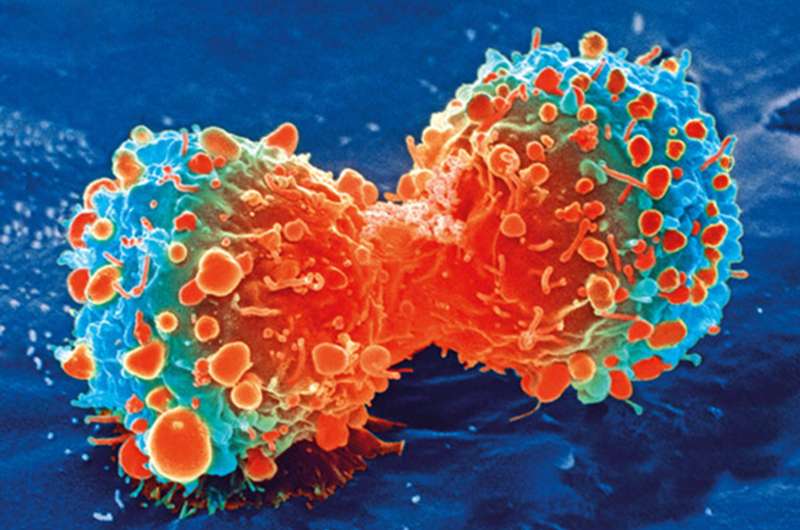Cancer shortens lifespan in transplant recipients

People who have received organ transplants face an elevated risk of developing cancer, primarily due to immunosuppression from medications to prevent organ rejection, as well as underlying medical conditions. An important unresolved question relates to the contribution of cancer to years of life lost among transplant recipients, which is a measure of the impact of cancer on premature death. This question was explored recently in a study published by Wiley early online in Cancer.
For the study, Anne-Michelle Noone, Ph.D., of the National Cancer Institute, and her colleagues examined organ transplant and cancer registry data in the United States from 1987 to 2014, with information related to all ages and all organs. The team quantified the life-years lost to cancer, or the extent to which the average lifespan is shortened by cancer, among transplant recipients.
Among 221,962 transplant recipients, 13,074 (5.9%) developed cancer within 10 years of transplantation. During this 10-year post-transplant period, recipients who developed cancer lost an average of 2.7 years of life due to their cancer diagnosis. In total, cancer was responsible for 11% of all life-years lost due to any cause.
Lung cancer and non-Hodgkin lymphoma had the highest impact, and each resulted in a lifespan shortened by approximately five years. Lung recipients had the highest life-years lost due to cancer, followed by heart recipients. Also, life-years lost due to cancer increased with age.
Source: Read Full Article
